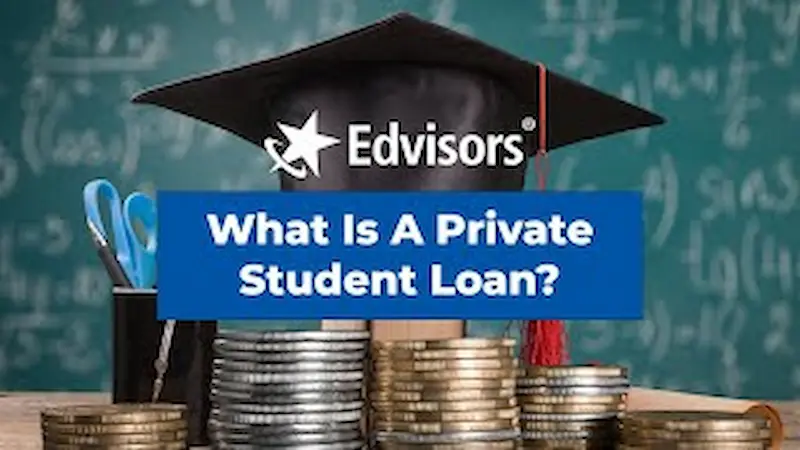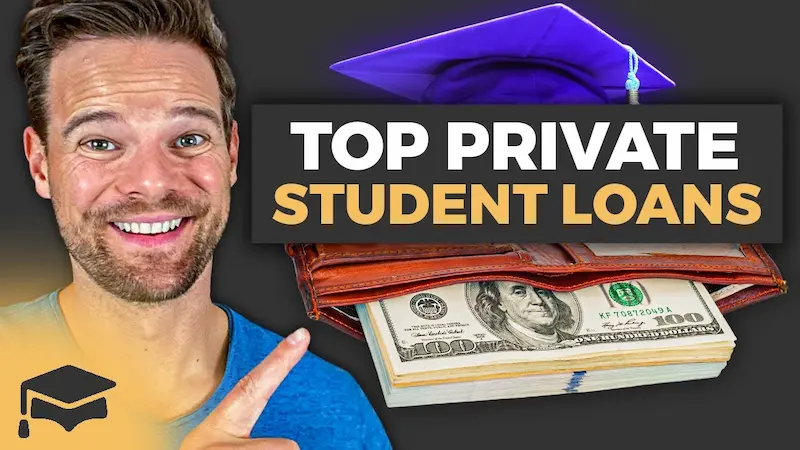Paying for college can feel like trying to climb a mountain—tuition, room and board, textbooks, and daily living expenses all add up quickly. For most students, federal loans are the go-to starting point because they offer low-interest rates and flexible repayment plans. However, sometimes federal loans and scholarships aren’t enough to cover the full cost of your education.
That’s when looking into the best private student loan options becomes essential. Private loans can fill the gap, helping you afford your education without sacrificing your lifestyle—or your financial future. Don’t worry—we’ll guide you step by step in a simple, friendly way so you can make smart borrowing decisions.
What Are Private Student Loans?

Private student loans are offered by banks, credit unions, and online lenders instead of the federal government. Unlike federal loans, which often have standardized benefits and protections, private loans come with different interest rates, repayment terms, and eligibility requirements.
Here’s why private student loans might make sense for some students:
- You’ve already taken out federal loans and still need money to pay for tuition or living expenses.
- Your family or you need additional funding to attend a more expensive college.
- You want flexible repayment options that might fit your personal financial situation.
However, private loans can carry higher interest rates and fewer protections, so it’s important to borrow carefully.
Factors to Consider Before Choosing a Private Loan
Choosing the right private student loan isn’t just about picking the lender with the lowest rate. Here are the key factors to evaluate:
1. Interest Rates
Private student loans can have fixed or variable interest rates:
- Fixed rates remain the same throughout the life of the loan. This is ideal if you want predictable monthly payments.
- Variable rates can start lower but may increase over time. They can save money in the short term if rates stay low, but they carry more risk.
Always compare the Annual Percentage Rate (APR), which includes both interest and fees, to get the full picture.
2. Repayment Terms
Private loans typically offer repayment periods ranging from 5 to 20 years:
- Shorter repayment terms mean higher monthly payments but less total interest paid.
- Longer terms lower monthly payments but increase the total cost of the loan over time.
Some lenders allow you to defer payments while you’re still in school, which can be helpful if you’re not earning an income yet.
3. Cosigner Requirements
Most private loans require a cosigner—usually a parent or relative with strong credit. A cosigner can:
- Help you qualify for the loan if you have little or no credit history.
- Potentially secure a lower interest rate because lenders see less risk.
Keep in mind, a cosigner is responsible for the loan if you can’t pay, so it’s a big commitment.
4. Fees and Penalties
Private lenders may charge fees such as:
- Origination fees (added when the loan is first issued)
- Late fees if a payment is missed
- Prepayment penalties for paying off the loan early
Look closely at the fine print to avoid surprises later.
5. Borrower Benefits
Some lenders offer perks that can make a big difference:
- Autopay discounts: A small interest reduction if you set up automatic payments.
- Flexible repayment options: For example, switching between graduated or income-based payments.
- Financial wellness support: Tools, resources, or career coaching to help you manage your money and plan for the future.
Top Private Student Loan Options

Here are some of the most trusted private student loan lenders you might consider:
1. Sallie Mae
- Offers loans for undergraduate, graduate, and professional degrees.
- Flexible repayment options: interest-only, deferred, or full payments while in school.
- Competitive interest rates and no prepayment penalties.
2. SoFi
- Known for no fees and low fixed rates.
- Provides member benefits like career coaching, networking, and financial planning resources.
- Offers unemployment protection in certain cases.
3. Discover Student Loans
- Offers both undergraduate and graduate loans.
- Option to defer payments while in school.
- Provides cash rewards for good grades on certain loans.
4. LendKey
- Partners with community banks and credit unions for lower interest rates.
- Offers personalized service and flexible repayment terms.
- Known for a user-friendly online application process.
5. Citizens Bank
- Allows you to customize repayment terms.
- Offers a cosigner release option, which is useful if you want to remove your cosigner after building credit.
You may also like to read this:
Top Money Saving Plans For Graduates To Secure Your Future
Best Financial Habits For College Students To Manage Money
How To Build A Student Budget Plan For College Success Today
Simple Financial Planning For Beginners: Easy Money Tips
Federal Student Loan Programs Explained Smart Borrowing Tips
Tips for Choosing the Best Private Loan
Here’s how to make the process easier and smarter:
- Compare Multiple Lenders: Rates, repayment options, and borrower perks can vary significantly. Don’t settle for the first lender you find.
- Check Your Credit Score: A higher credit score can help you secure a lower interest rate. If your score is low, consider a cosigner.
- Borrow Only What You Need: It’s tempting to take the maximum amount, but borrowing more than necessary can lead to long-term debt headaches.
- Read the Fine Print: Always understand repayment terms, fees, and any potential penalties before signing.
- Plan Your Repayment: Know your expected monthly payments after graduation to ensure they fit your budget.
Private vs. Federal Loans
While private loans can be helpful, federal loans should usually come first because they offer:
- Lower interest rates
- Flexible repayment plans (like income-driven repayment)
- Loan forgiveness options in some cases
Private loans should supplement federal aid, not replace it. They’re best for covering gaps in funding when federal loans and scholarships aren’t enough.
Final Thoughts
Exploring the best private student loan options doesn’t have to be stressful. By carefully evaluating interest rates, repayment terms, cosigner requirements, and lender benefits, you can choose a loan that fits your financial situation. Always start with federal aid, borrow responsibly, and make a plan for repayment so your student loans don’t become a burden after graduation.
With careful planning, private student loans can be a helpful tool to achieve your educational goals without compromising your financial future.
FAQs About Private Student Loans
1. What is a private student loan?
A private student loan is a loan offered by banks, credit unions, or online lenders to help pay for college expenses. Unlike federal loans, private loans often have variable interest rates and fewer borrower protections. They are meant to supplement federal aid or scholarships when those sources aren’t enough.
2. How do private student loans differ from federal student loans?
Federal loans usually offer lower interest rates, flexible repayment options, and loan forgiveness programs. Private loans often have higher rates and fewer protections but can help cover costs not met by federal loans.
3. Do I need a cosigner for a private student loan?
Most private lenders require a cosigner, especially if you have limited or no credit history. A cosigner helps you qualify for a loan and may help you get a lower interest rate. Some lenders allow cosigner release after demonstrating consistent payments.
4. Can I get a private student loan with bad credit?
It is possible, but it can be challenging. A cosigner with good credit is usually required. Some lenders also consider income, education level, and future earning potential when approving loans.
5. What are the interest rates for private student loans?
Private student loan rates vary by lender and creditworthiness. They can be fixed (stay the same throughout the loan) or variable (may change over time). Always check the APR, which includes interest and fees, for a complete picture.




